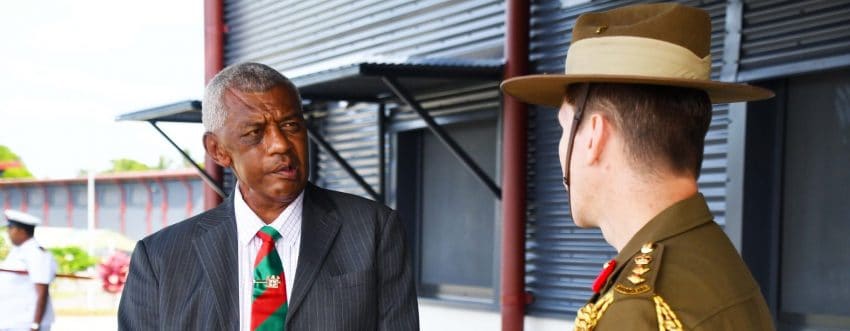A defence treaty between Australia and Fiji should include vetting processes for human rights violations, a parliamentary committee has been told.
The agreement on Cooperation in the Field of Defence and the Status of Visiting Forces, signed in September 2019, seeks to improve the ability of the two nations’ militaries to work together.
It also sets out a legal framework for military activity in each nation.
Australia director at Human Rights Watch, Daniela Gavshon, said the agreement needs to require human rights vetting.
She told a committee hearing that in the absence of comprehensive vetting legislation, the organisation recommended the agreement be changed to include a clause stipulating the requirement.
Gavshon pointed to the Australian Defence Force’s appointment of Fijian Colonel Penioni (Ben) Naliva as deputy commander of the Australian Army’s 7th Brigade, despite his alleged involvement in the torture of detainees in the Pacific Island nation.
“Australia does not tolerate war crimes or human rights violations by its own soldiers, and it should not welcome into its ranks military and police personnel from other countries who commit them either,” she told the committee on Monday.
“The Australian government should be extremely careful not to legitimise anyone or any forces who’ve been involved in serious human rights violations.”
Colonel Naliva is accused of having been involved in several incidents of torture, including serious physical assault during an interrogation.
Chief of the Defence Force Angus Campbell previously told a Senate estimates hearing he had ordered a review into Colonel Naliva’s appointment. The colonel’s appointment was made outside of the agreement between Australia and Fiji.
